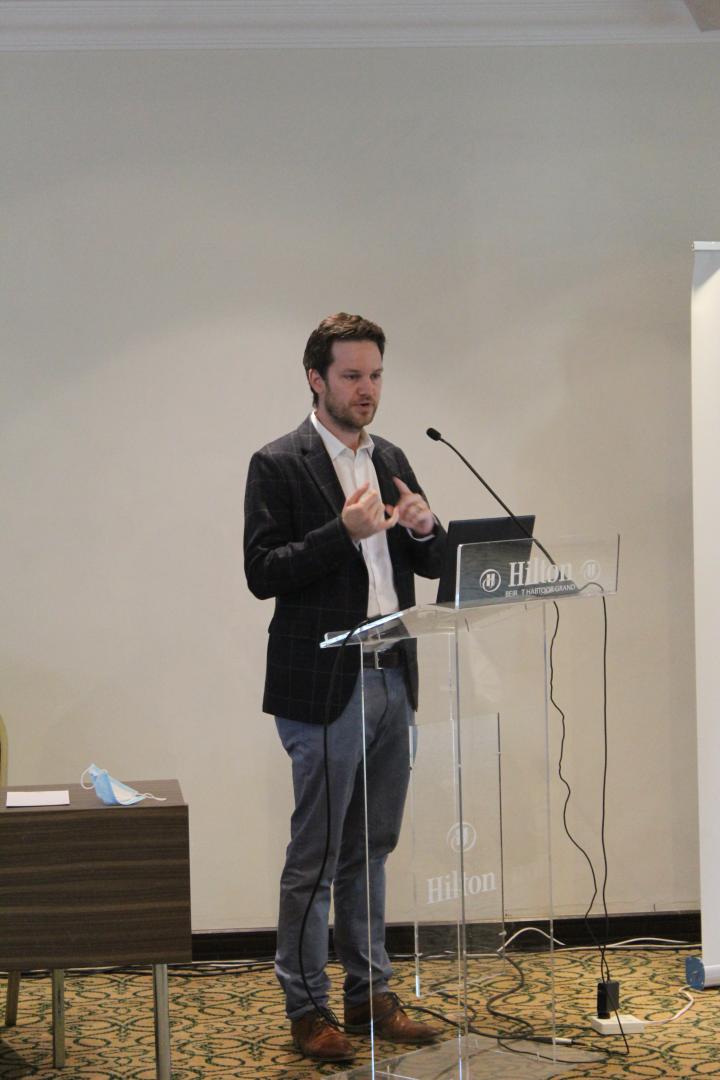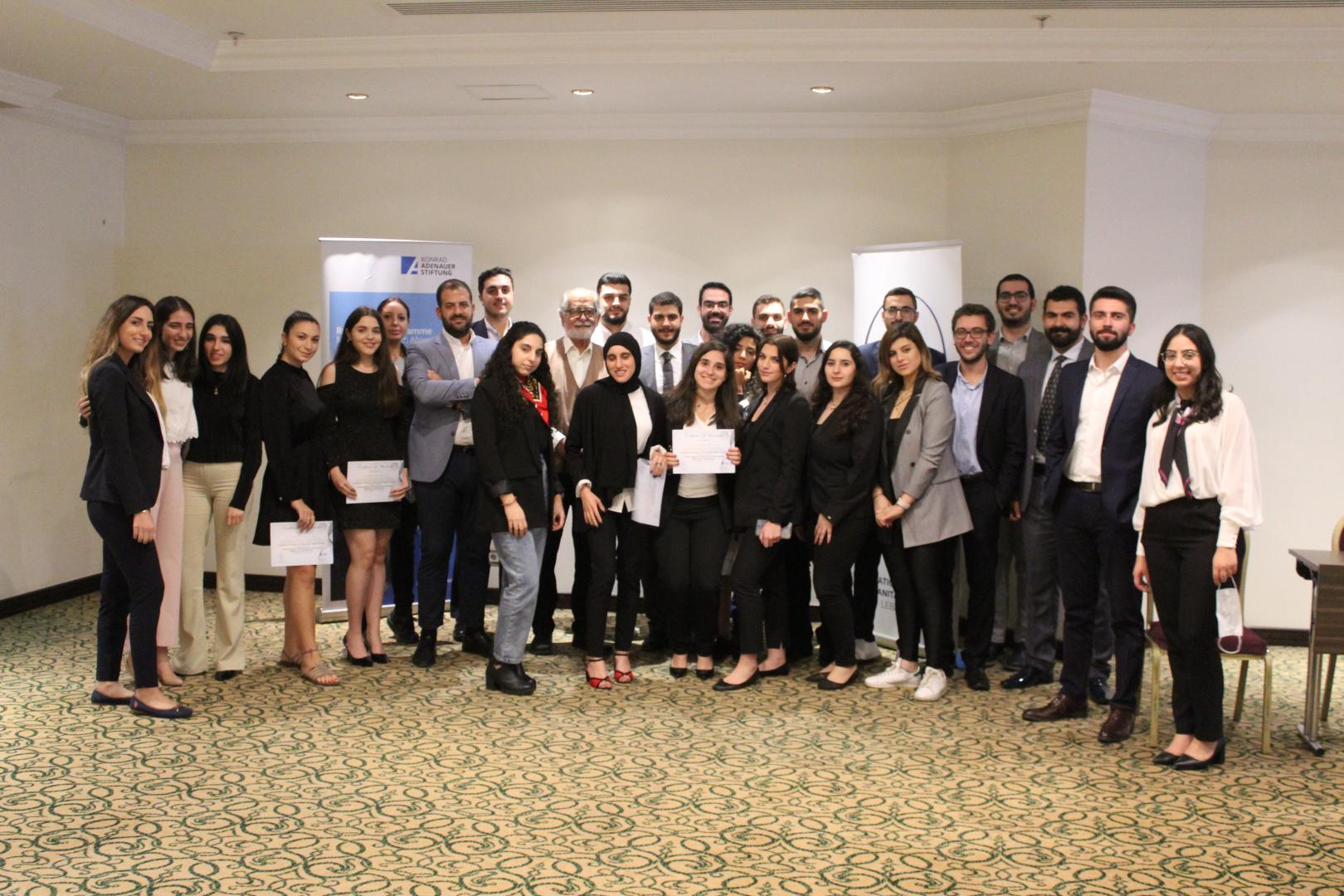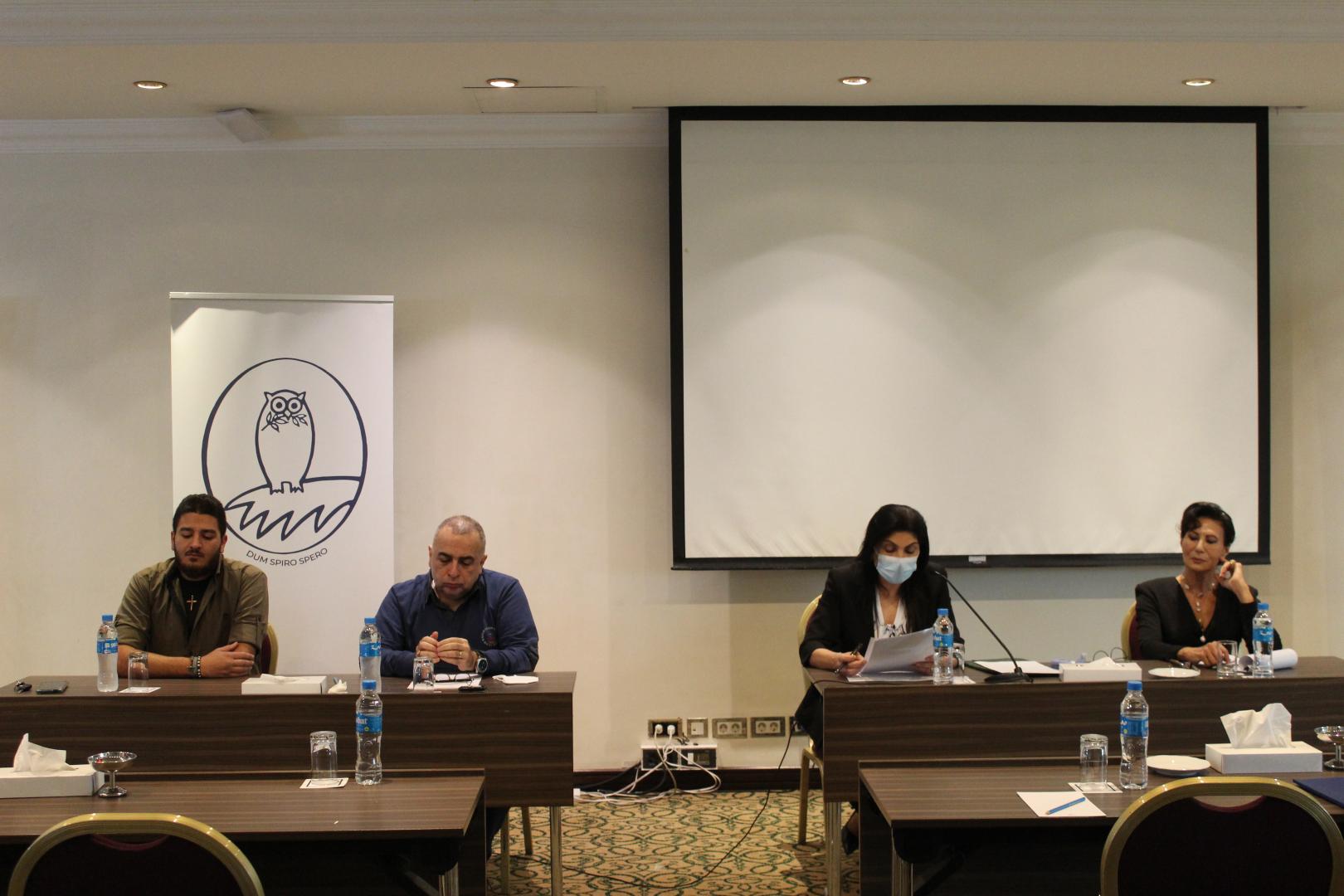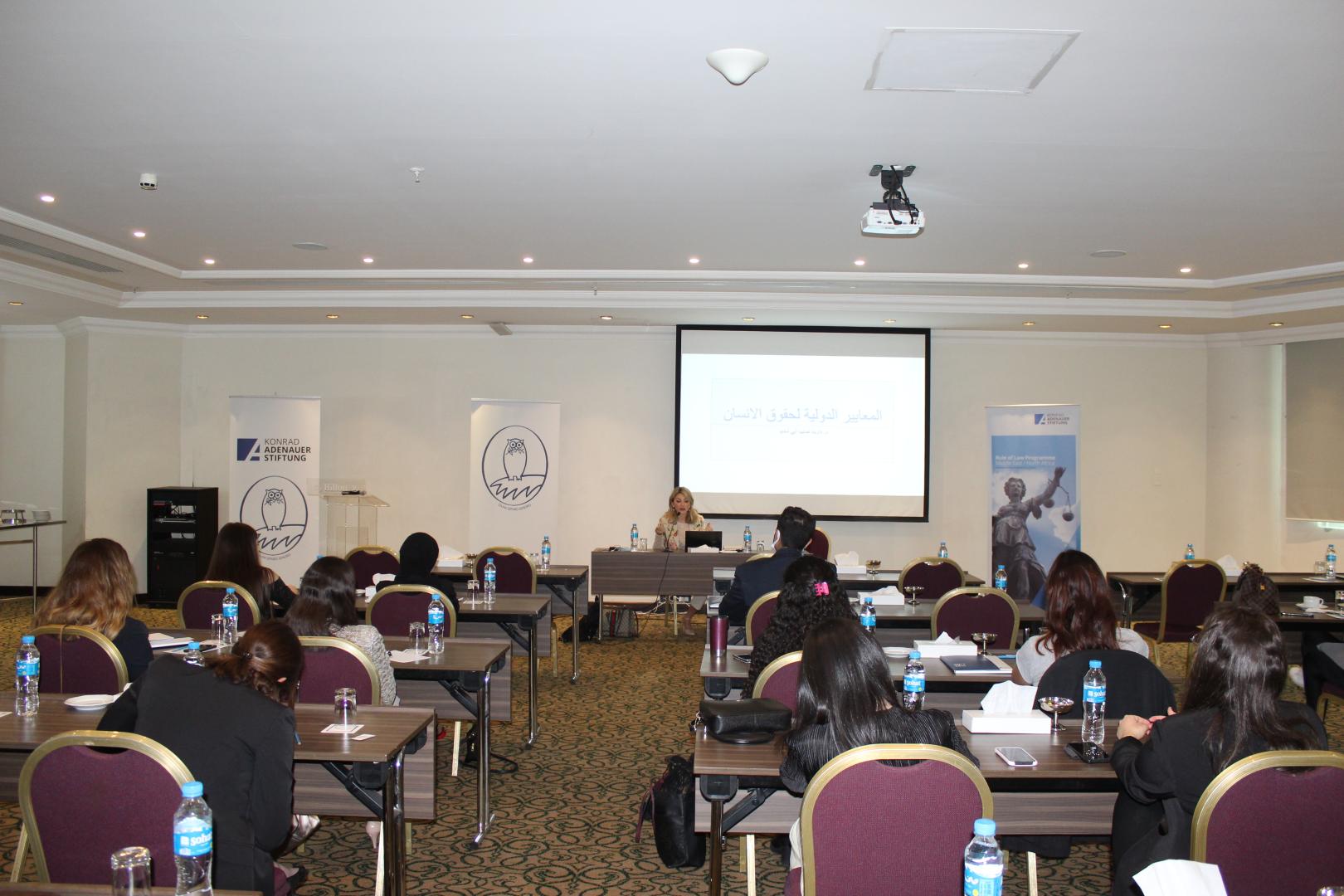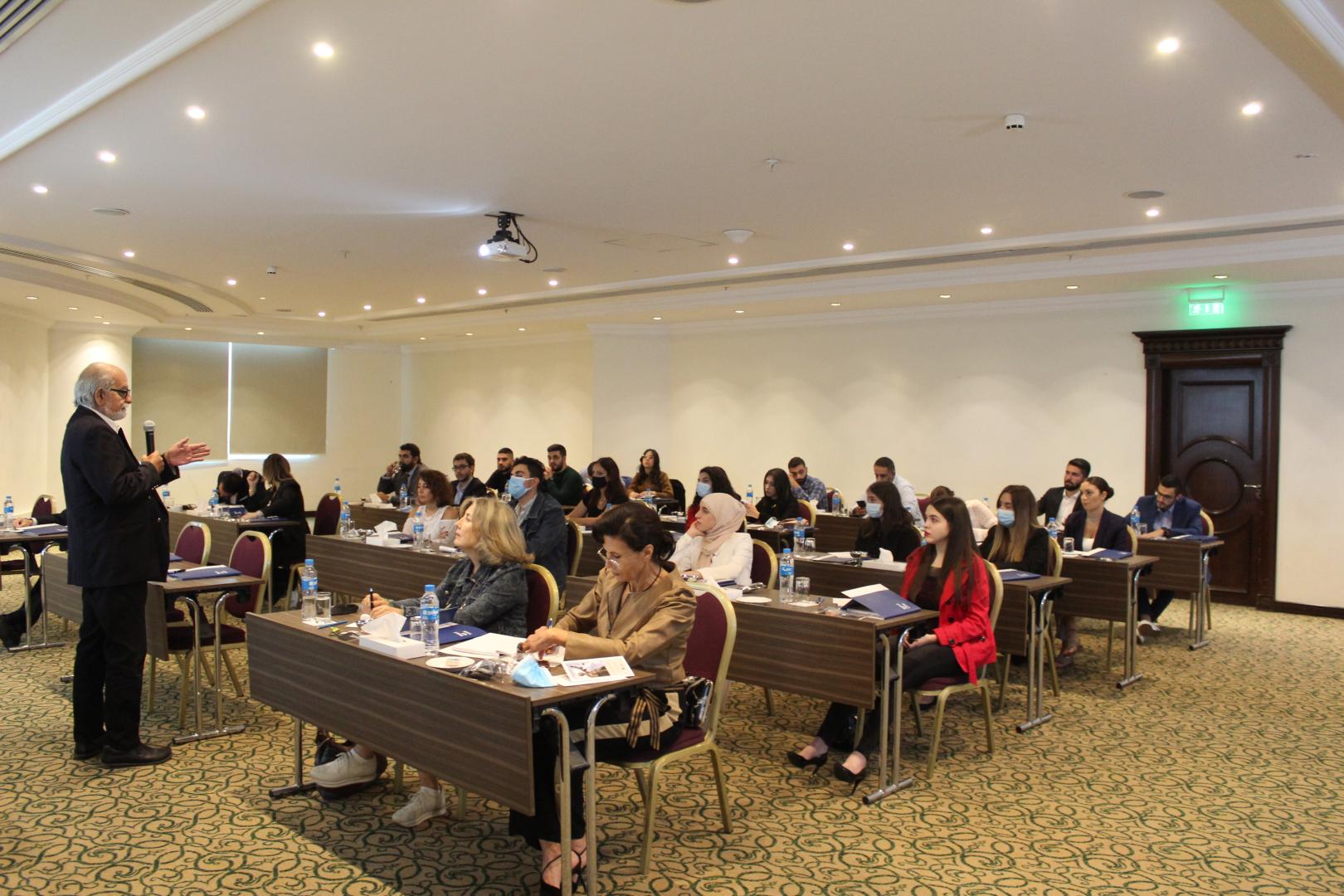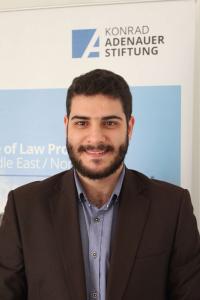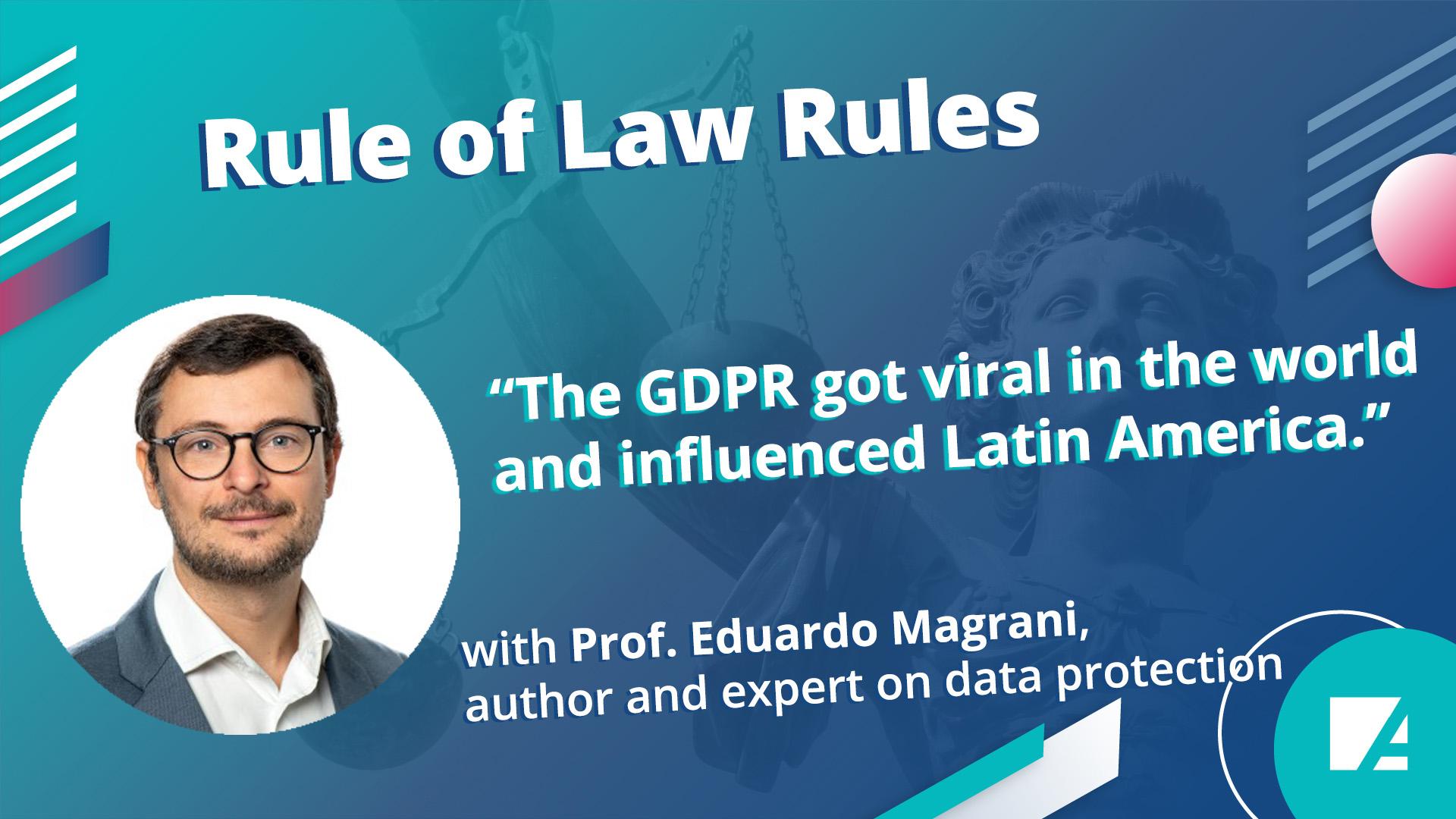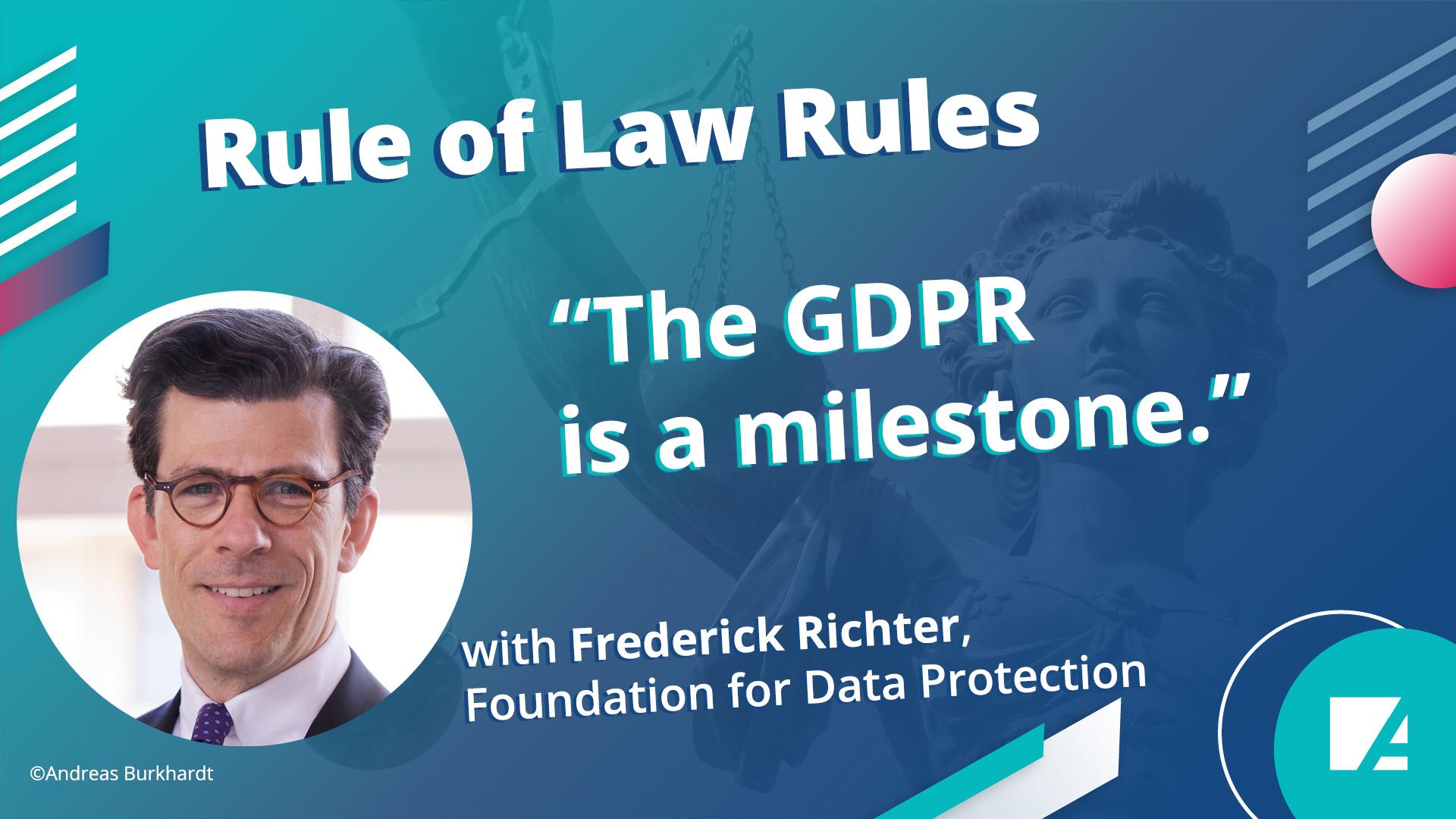November 13:
“No one is above the law, no individual but also not the state”, as mentioned by the head of the Rule of Law Progamme Middle east and North Africa at the Konrad-Adenauer-Stiftung Mr. Philipp Bremer, whom also adeptly greeted the attendees to the Konrad-Adenauer-Stiftung, its programs in Lebanon and in the region at the beginning of the session. In his following introduction, Mr Bremer did not only state the fact that the human rights were mentioned in the German Constitution after the Second World War but also insisted on the importance of the human dignity which “shall be inviolable”.
Similarly, Mr. Wael Kheir, one of the main speakers, opted to thank the Rule of Law Program Middle East & North Africa of the Konrad-Adenauer-Stiftung (KAS) for their collaboration as well as their efforts. In fact, he did not stop there, he continued to talk about Mr. Konrad Adenauer which sounded like one of his biggest assets during this workshop. He used the history of this one specific person, more specifically his time in prison during the World War II in order to give the attendees a life lesson: “Don’t be afraid of persecution”. Indeed, a message of motivation, to remind a person of who he/she is. Lastly, Mr. Kheir clarified both of the secular and religious approaches related to the Human Rights evolution.
Moving on to Dr. Antoine Nasrallah who held an interesting intervention related to Lebanon and the Human Rights Declaration by using one of its most inspirational figures, Charles Malik, who, by himself, shed a light on the freedom of religion. Correspondently, Nasrallah highlighted during his explanation this specific point by quoting one of Malik’s famous sayings, “One has the right to choose his religion”.
Mr. Nadim Boustani, fourthly, addressed the criteria’s in addition to the characteristics of a genocide. Furthermore, as he expressed his opinion by affirming that “The abolition of political sectarianism is the preparation for a genocide”, he made sure to clarify as well the real difference between crime assets and genocides.
The first day finally concluded with Dr. Elie Elias who ended by presenting the Preamble of the Lebanese Constitution. As a matter of fact, Lebanon was a pioneer among its Arab Countries due to the fact that its Constitution included articles on human rights. Likewise, Dr. Elias did not forget to mention the crucial role of Lebanon as a founder and as an active member of the United Nations.
November 14:
The day after started with Dr. Darina Saliba Abi Chedid, the Director of the International Center for Human Sciences (CISH) - UNESCO. Essentially, she introduced on the first hand, the academic approach of the Human Rights concepts, then, on the second hand, the legal one. Subsequently, a part of her dialogue was dedicated also to the presentation of the Human rights international institutions and courts. Throughout her part, she did not forget to illustrate her arguments with some relevant comments such as the fact that people are more aware nowadays of the basic Human Rights, etc.
Apart from the engagement with the academic speakers, the attendees seemed truthfully absorbed by the personal testimonials of: Mrs. Antoinette Chahine (Ex-detained in a Lebanese prison), Mr. Joseph Hallit (Ex-detained in a Syrian prison), Mrs. Mona Akl (Activist of female prisoners) and Mr. William Noun (Brother of a martyr of the 4thAugust Beirut blast). Thus, this part was filled with mixed emotions: anger, rage, tears, fulfillment and satisfaction, because, at some point, some felt like they have obtained their freedom while others did not.
Moreover, MP Elie Keyrouz, treated in the first place the topic of Lebanon and the Judicial system. In the second place, he mentioned an important issue regarding the Lebanese Military Courts, that, somehow, they do not tend to value the basic Human Rights and needs. Not only that, he added that there is an absence of the right of defense. For example, he accentuated on the fact that the decisions issued by the Lebanese Military Courts were not legally justified.
In the end, Mr. Wael Kheir re took the stage by addressing a practical part on how to raise a human rights case.
The workshop came to an end and a certificate of attendance was distributed to the attendees.
Written by Ghiwa Bitar



